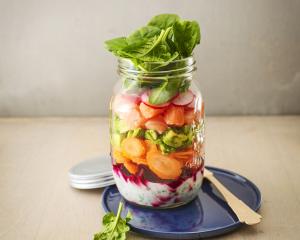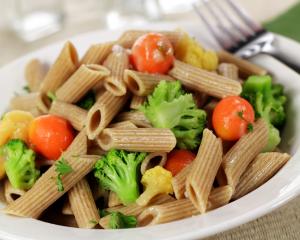

It is available year round but is especially plentiful, and therefore well priced, at the moment.
The majority of our kumara is grown in Northland where soil type and climatic conditions are ideal for kumara. There are a huge number of different varieties of kumara, although only three are commercially available in New Zealand.
Of the three, the orange kumara, sometimes sold as Beauregard, is my pick. It has a rich orange flesh and is sweeter than both the red and gold.
Kumara should be stored in a cool, dark place that is well ventilated. Storage, as well as cooking, is very similar to the humble spud. When cooking, scrub thoroughly and leave the skin on, if possible.
It hosts an array of nutritional benefits due to the phytochemicals and finding skins in your kumara mash is really not worth worrying about. The fleshy part is a source of vitamin C, potassium, calcium and beta carotene.
Research shows that kumara is a valuable medicinal plant having anti-cancer, antidiabetic and anti-inflammatory activities.
As kumara is a carbohydrate, limit your quantity, especially at night if wanting to reduce body fat.
Unlike potatoes, kumara are not part of the nightshade family so can be enjoyed if you do have an autoimmune condition or osteoarthritis.
So, what to do with this versatile vegetable? First up, kumara chips. Scrub the skins, cut into wedges and spread, slightly spaced on a lined baking tray. Lightly brush all over with melted coconut oil and then sprinkle with cinnamon and some salt.
Pop into a preheated oven on fan bake for 20-30 minutes, turning halfway through. For the last five minutes, you can leave the oven door ajar to let the steam escape so the chips are slightly crunchier around the edges.
Try to get them to make it on to the family's plates before eating them all off the oven tray.
Another easy option is to cut kumara into 2cm pieces (skin on) and roast alongside cubed pumpkin, carrot and yams. Sprinkle with salt and oil and bake for 20-30 minutes.
Towards the end, sprinkle with grated parmesan and pesto. Leave to cool for lunches, served with baby spinach leaves and some protein such as boiled egg, canned salmon or quinoa and pumpkin seeds.
Kumara mash or ''Whipped kumara with cardamom'' as a menu might read: Boil about 5 medium kumara which have been cut into 2cm cubes in water over a medium heat until tender, about 10 minutes. Drain the cooking water.
Add ½ cup almond milk and ½ tsp cardamom and blend in a food processor/electric mixer until light and fluffy. Serve warm under a piece of steak, roast chicken or dahl. This is a great addition to children's meals as it is sweet and sticks to their forks easily.

Spiced kumara soup with almonds
This kumara soup recipe makes a hearty winter soup, which is sure to please.
Ingredients
2 Tbsp coconut oil
6-8 medium kumara, ends removed, scrubbed and grated
3 cloves garlic, crushed
2 tsp ground cumin
2 tsp ground coriander
sea salt and black pepper
1L chicken/vegetable stock
2 cups unsweetened almond milk
½ cup natural flaked almonds
2 Tbsp dukkah
Method
Heat a tablespoon of coconut oil in a large pot over high heat. Add the kumara, garlic, cumin, coriander, salt and pepper and cook, stirring, for five minutes or until the kumara has softened.
Add the stock and almond milk. Cover and bring to the boil. Reduce the heat to medium and cook for 15 minutes until the soup has reduced slightly.
While the soup is cooking, heat the remaining oil in a small frypan over high heat. Add the almonds and dukkah and cook, stirring until golden and crisp.
Divide the soup among four bowls and top with the almond mixture. Serve with a slice of crusty pumpkin seed sourdough for the ultimate winter meal.













